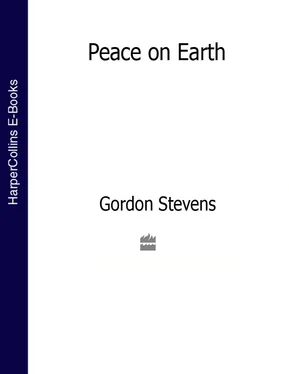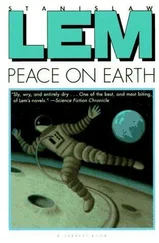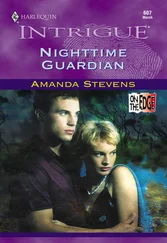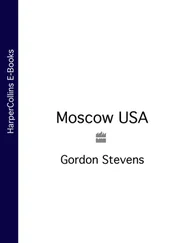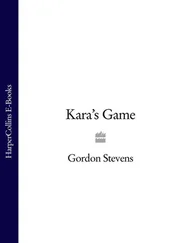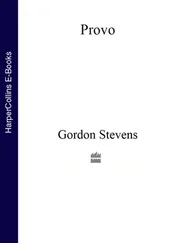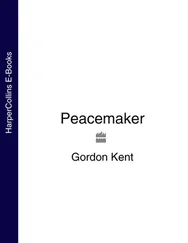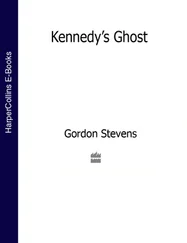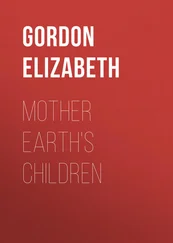Gordon Stevens - Peace on Earth
Здесь есть возможность читать онлайн «Gordon Stevens - Peace on Earth» — ознакомительный отрывок электронной книги совершенно бесплатно, а после прочтения отрывка купить полную версию. В некоторых случаях можно слушать аудио, скачать через торрент в формате fb2 и присутствует краткое содержание. Жанр: unrecognised, на английском языке. Описание произведения, (предисловие) а так же отзывы посетителей доступны на портале библиотеки ЛибКат.
- Название:Peace on Earth
- Автор:
- Жанр:
- Год:неизвестен
- ISBN:нет данных
- Рейтинг книги:3 / 5. Голосов: 1
-
Избранное:Добавить в избранное
- Отзывы:
-
Ваша оценка:
- 60
- 1
- 2
- 3
- 4
- 5
Peace on Earth: краткое содержание, описание и аннотация
Предлагаем к чтению аннотацию, описание, краткое содержание или предисловие (зависит от того, что написал сам автор книги «Peace on Earth»). Если вы не нашли необходимую информацию о книге — напишите в комментариях, мы постараемся отыскать её.
Peace on Earth — читать онлайн ознакомительный отрывок
Ниже представлен текст книги, разбитый по страницам. Система сохранения места последней прочитанной страницы, позволяет с удобством читать онлайн бесплатно книгу «Peace on Earth», без необходимости каждый раз заново искать на чём Вы остановились. Поставьте закладку, и сможете в любой момент перейти на страницу, на которой закончили чтение.
Интервал:
Закладка:
Yakov Zubko sensed that the man would not change his mind and told himself there would be other families, other people who were not afraid, admitted to himself that it was already the beginning of winter, that there would be few other tourists before the weather set hard and the hotel found out about him.
The wife was still looking at him. ‘I understand,’ he was saying to her, the lift stopping and the husband and children getting out. ‘Thank you anyway.’ His finger was drawing the pattern on the wall, the woman still looking at him, at the pattern. He knew it would not work, that he should not do it, should not risk so much, the words coming anyway, telling her who he was, what he was. Telling her everything.
‘ B’shavia Haba a b’Yerushalaim ,’ he spoke slowly, quietly, committing himself.
She was looking at him, knowing what he was saying, what he was telling her, knowing who he was, what he was, what he was trying to do, her finger repeating the pattern on the wall, the six lines, two triangles, one inverted upon the other. The star of David. ‘ B’shavia Haba a b’Yerushalaim ,’ she replied.
‘Next year in Jerusalem,’ confirmed Yakov Zubko.
In the corridor the husband was waiting for his wife to join him and the children. ‘We leave tomorrow,’ said the woman, ‘could you collect our cases at ten forty-five.’
Alexandra finished the matvah at six and placed it in the oven, then she laid the table and bathed the children. When they were dry she took their best clothes from the wardrobe they all shared and dressed them, then she went to the bathroom along the landing and washed herself. It was six thirty. From the same cupboard she took her one good dress, the dress she had worn when she had married Yakov Zubko eleven years before, and put it on. The night outside was dark, the cold penetrating the glass of the windows; she pulled the curtains tighter and wondered what she would say, how she would tell her husband. At nine his brother Stanislav, Stanislav’s wife Mishka and their two children would join them, would share the food for which she had sold the chair that afternoon; before that, Alexandra had asked, before that, they had insisted, she would have one hour alone with Yakov Zubko and their family.
It was almost time. From her handbag she took the forms she had been given that afternoon by the man in the office on Kolpachny Lane and placed them on the table, laying the food around them. The matvah , there had been no time on that dread night for the women to prepare anything other than unleavened bread; the single roast egg for new life; the salted water for the tears of the slaves and the horse-radish for their bitterness; the extra plate and wine glass for the stranger who might come alone. The last thing she placed on the table, in a position where Yakov Zubko must see them first, were the haroseth sweets, then she called her son and daughter to her and stood facing the door, a child on either side and an arm round each.
The children were frightened, unsure what was happening; Alexandra herself had no tears left to cry.
She had waited another ten minutes when she heard him on the stairs: the same pace, the same slight delay as he searched in his pocket, the same scratching noise as he turned the key in the lock. She leant forward and lit the candle. He was a good man, she thought, a good husband and father; she did not yet know how she would tell him.
Yakov Zubko pushed the door open, carrying the small plastic bag of food he had brought from the hotel, and entered the room. He felt tired and cold, glad Alexandra would be there to welcome him, hoping that the children would not be asleep so that he could kiss them goodnight.
He saw the shadow on the wall, the flame of the candle on the table, the dishes around it, his family waiting for him, his wife in her wedding dress and the children in their best clothes. He did not understand, did not know what to think, looked again at his wife, at the table. Saw the matvah, the roasted egg, the bowl of salted water beside it, the place for the stranger. Saw one thing above all, the haroseth sweets.
The beginning of the festival, he was thinking, the commemoration of the night the Angel of Death passed over the land of Egypt, the beginning of the Feast of the Passover, the celebration of the delivery of his people.
The haroseth sweets, he could not help think, the symbol of the sweetness of freedom.
Alexandra reached to the table and handed him the papers she had been given in the office on Kolpachny Lane. ‘B’shavia Huzu a b’Yerushalaim,’ she said the words, did not know she had said them.
The same words he had said to the American woman in the lift in the hotel, the words she had understood and said back to him.
Not quite the same words. One word of difference for which they had been prepared to sacrifice everything. Not ‘Next year in Jerusalem’, not the saying which kept Yakov Zubko and the likes of Yakov Zubko in hope through the long Russian winters, the other saying, the saying for which so many longed but which so few now heard.
‘B’shavia Huzu a b’Yerushalaim.’
‘This year in Jerusalem.’
‘We are going home, Yakov Zubko.’ Alexandra closed the door behind him and shut the family Zubko off from the rest of the world. ‘We are going home to Israel.’
* * *
Yakov Zubko had been born in the Ukraine in 1951; despite the poverty of his parents he had shone at school, both as an athlete and as a mathematician. His record, whether at the University of Kiev where he graduated as an engineer or during his compulsory military service, had been impeccable. He had twice been promoted in the precision tool factory where he had first worked. In 1973 he had married Alexandra, then a teacher, the following year they had moved to Moscow, where he had secured a job in the ZIL car works; within six months of his new appointment he had again been promoted.
Yakov Zubko was a model of the Soviet system. He was also a Jew.
In 1977, after considerable soul-searching, he and Alexandra had applied to leave Russia for Israel. The request was rejected, partly on grounds of state security, Yakov Zubko having served in the Red Army, partly on grounds which were not specified, and they had joined what would shortly become the swelling ranks of the refusniks. Within three months Yakov Zubko had first been demoted then lost his job totally; since then they had survived on Alexandra’s salary during the period she worked as a teacher, and whatever he himself could earn whenever he found casual work. Each month since then they had sold a possession in order to eat, each month since then they had also tried to place a few more roubles in the tin they kept under the mattress for the day they would be called to Kolpachny Lane and told they could leave. Increasingly, not through design, simply to help his family survive, and to save the money for their journey home, Yakov Zubko had been drawn into the fringes of the black market.
The following year Alexandra had borne him their first child, a son whom they called Nicholas. The boy was delivered late at night in the maternity wing of the local hospital; partly as a joke, partly as an act of defiance, they referred to the place where he had been born by the name of the place they thought they would never see, the town called Bethlehem. In the winter of 1978, as they carried their son home, in the later years when they told him, there was no way they could know the awesome inheritance of that family secret.
Their second child, a daughter, had been born in the same hospital three years later.
In 1979 his brother Stanislav Zubko had applied to leave Russia with his wife Mishka and their son Anatol; like Yakov and Alexandra they were refused. Later that year Mishka bore Stanislav’s second child, a girl whom they named Natasha after her great-grandmother. Like her great-grandmother, who only saw her once, Natasha was small and pretty, with large eyes, and like her great-grandmother, to whom she was the most precious creature in the world, she was cursed with asthma. Even on the hot summer days when the two families walked in Gorky Park or went in the car which Stanislav was sometimes able to borrow to the fields outside Moscow they could hear her suffering.
Читать дальшеИнтервал:
Закладка:
Похожие книги на «Peace on Earth»
Представляем Вашему вниманию похожие книги на «Peace on Earth» списком для выбора. Мы отобрали схожую по названию и смыслу литературу в надежде предоставить читателям больше вариантов отыскать новые, интересные, ещё непрочитанные произведения.
Обсуждение, отзывы о книге «Peace on Earth» и просто собственные мнения читателей. Оставьте ваши комментарии, напишите, что Вы думаете о произведении, его смысле или главных героях. Укажите что конкретно понравилось, а что нет, и почему Вы так считаете.
